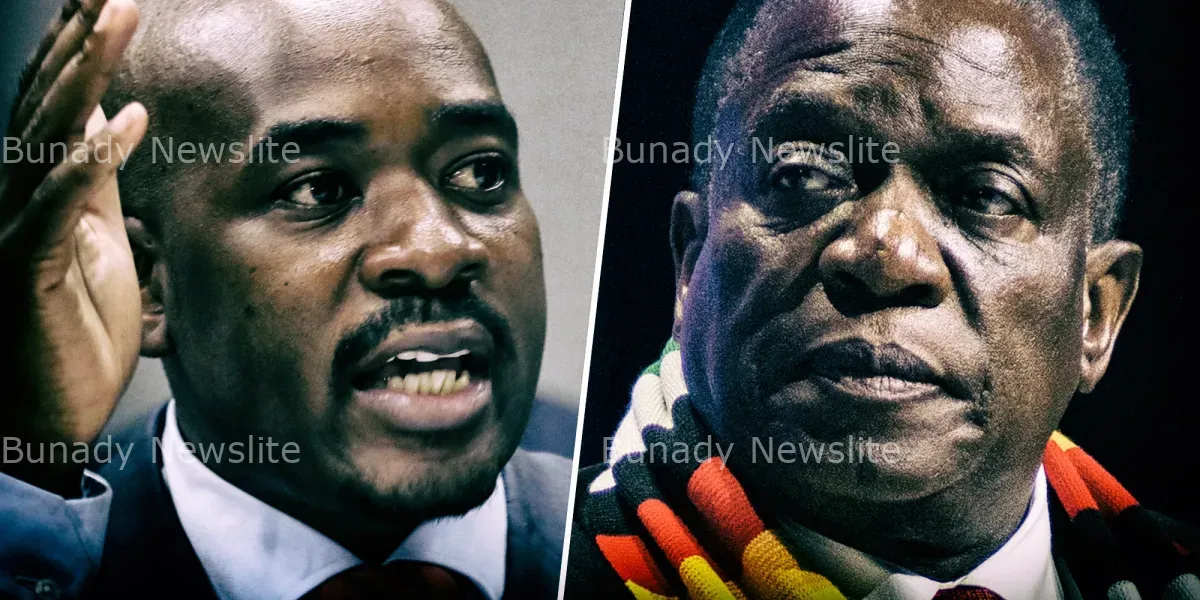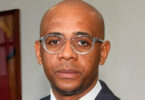Harare – A defiant Nelson Chamisa, Zimbabwe’s embattled opposition leader, has sent a stark warning to President Emmerson Mnangagwa and his ruling Zanu PF party, vowing to “get the job done” in the face of what he calls a “cheated and betrayed” past. This comes as engagements between Chamisa and the Southern African Development Community (SADC) gain momentum ahead of the regional body’s annual summit in August, injecting a new wave of tension into the already volatile political landscape.... CLICK TO READ THE FULL NEWS HERE▶▶
Chamisa’s pronouncements, delivered through a series of fiery tweets, follow his dramatic resignation as President of the Citizens Coalition for Change (CCC) in January, where he accused the party of being “contaminated” and “hijacked” by the government. The move has been interpreted by some as a sign of a renewed and potentially more potent Chamisa, one who is ready to fight for change with a renewed vigour.
“The hazards of a dictatorship… It’s not easy to lead and run a political party in a dictatorship especially without a budget and in an environment of extreme poverty. It’s even worse when this is all in a context of massive unemployment where some occupy public office opportunistically mistaking citizens’ representation and deployment for employment. It’s a difficult environment. What an impossible task!! But then to serve is to sacrifice. Change must happen. The job will get done!” Chamisa tweeted, seemingly referencing the challenges of leading an opposition party in a country where the ruling party holds a tight grip on power, often resorting to intimidation and manipulation to silence dissent.
His message resonated with many, particularly those who have witnessed the struggles of the opposition in Zimbabwe, where the political playing field is often tilted against those who challenge the status quo.

“A cheated and betrayed man who is rebuilding himself is a dangerous man,” Chamisa declared in response to a Twitter user who questioned his plans for change. This statement, laced with a potent sense of resolve, has fuelled speculation about the direction Chamisa might take as he rebuilds his political force. Some see this as a sign of a leader who has been pushed to the brink, ready to fight back with a renewed sense of purpose.
The recent revelations of SADC’s engagement with Chamisa over the disputed 2023 elections have further ignited the political landscape. Chamisa, who has consistently maintained that the elections were “a gigantic fraud,” has been pressing for SADC’s intervention, citing the regional body’s condemnation of the polls as falling short of free, fair, and credible standards.
“It is our considered view that the coming of SADC into Zimbabwe is a welcome and rare opportunity to help foster a political solution to Zimbabwe’s challenges, restore legitimacy and avert the deteriorating political situation,” said Promise Mkwananzi, the CCC spokesperson.
The CCC, under Chamisa’s leadership, has been vocal in its demand for a political settlement, arguing that the current government is illegitimate and that dialogue between Chamisa and Mnangagwa is the only path towards a lasting solution.
Chamisa’s stance is rooted in his belief that the 2023 elections were marred by irregularities and that the results do not reflect the will of the Zimbabwean people. He has repeatedly accused Zanu PF of manipulating the electoral process, citing numerous instances of alleged voter intimidation, manipulation of voter rolls, and suppression of opposition voices.
“I will have nothing to do with sewer politics,” Chamisa declared in a 13-page statement he penned in January this year while announcing his resignation from the CCC, highlighting his disgust with the perceived corruption and manipulation within the party he formed.
Chamisa’s resignation came just five months after the August 2023 general elections, which were widely condemned by regional and international observers, including the SADC and African Union (AU). Chamisa won 44% of the votes in the presidential election, which was marred by allegations of foul play.
However, several MPs from his CCC party lost their seats in what Chamisa called “sabotage” by the ruling party. Chamisa, a 45-year-old Christian pastor and lawyer, is expected to set up a new party, with many speculating that he will use the SADC Summit as a platform to rally support.
Chamisa’s critics, however, argue that his weak leadership led to deep rifts in the opposition, which only helped President Emmerson Mnangagwa cement his grip on power. In his resignation letter, Chamisa accused the ruling party of being behind the move to “defile” and “bastardize” the CCC.
Mnangagwa came to power in 2017 following a bloodless coup that ousted long-time leader Robert Mugabe. At the time, he was seen as a beacon of change and hope for the struggling country. However, high inflation, corruption, unemployment, and censorship remain rife in Zimbabwe.
Chamisa has been in opposition politics for more than two decades, facing numerous threats to his life, including an alleged assassination attempt in 2022 during by-election campaigns. He also suffered a cracked skull during a clampdown on the opposition in 2007.
Chamisa’s tweet has sparked a flurry of responses from Twitter users, with some expressing support for his stance while others questioning his ability to bring about change. One user, who goes by the name ‘Laws of Men’, wrote: “Nothing makes a man dangerous than realizing he can always restart, refocus and rebuild himself again.”
Recently, NewsDay revealed that engagement is underway between the SADC and Chamisa to resolve the August 2023 electoral dispute. Chamisa lost the ballot for the second time to Mnangagwa, who won 52.6% of the vote. Chamisa has refused to recognize Mnangagwa as the legitimate leader of Zimbabwe, describing the election as a “gigantic fraud.”
The SADC election observer mission said the Zimbabwean elections failed to meet regional and international standards on holding free, fair and credible polls. Chamisa has been writing to the SADC since last year, seeking its intervention on the electoral dispute.
In a statement, CCC spokesperson Promise Mkwananzi said that as SADC prepares to hold its annual summit this August, the hopes of Zimbabweans have been rekindled to finding a lasting solution to the contested election results. “The issue of the disputed elections ought to be foremost on the SADC agenda with a view to facilitate dialogue and ultimately a political settlement between the two contending presidential candidates namely Advocate Nelson Chamisa and Emmerson Mnangagwa. There is no other alternative to this dialogue,” said Mkwananzi.
Despite the challenges facing the opposition, Chamisa remains optimistic about the nation’s future. In a recent tweet, he declared: “ZIMBABWE WILL ACHIEVE MORE THAN THIS… It is possible within our lifetime! Let’s make these Spaghetti roads a reality.”
The SADC summit presents a crucial opportunity for Zimbabwe to break free from the cycle of political turmoil and economic stagnation. Chamisa’s willingness to engage with the regional body, coupled with the growing international pressure on Mnangagwa’s government, could provide the impetus for a meaningful dialogue and a path towards a more stable and prosperous future for Zimbabwe.











